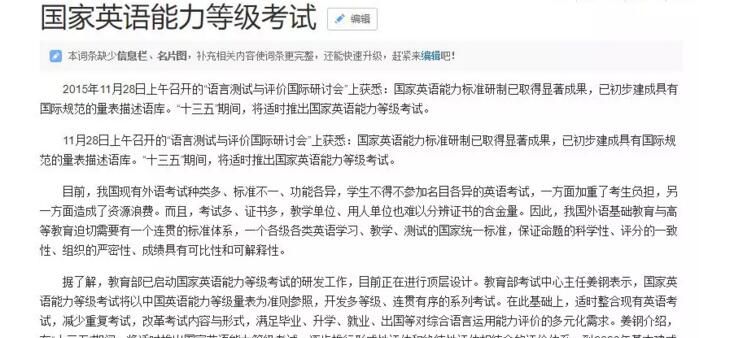大学英语自学教程上册笔记Unit 1-3
|
《英语自学教程笔记》是通过对大学英语自学教程的学习所记录,对学习英语大有用处。 大学英语自学教程上册笔记Unit 1-3 The second lecture of College English Hi, everyone! Are you satisfied with the first lecture? Today we’ll continue to learn unit one. Ⅰ.Review something in lecture one: A. Useful phrases: 1.disagree with …(2段1行); 2.hundreds of(2段3行); 3. be different from…(3段1行); 4. succeed in sth…(3段3行); 5. as much as you can(4段2行); 6. practice doing sth(4段2行); 7. try to do…(4段4行); 8. similar in sth…(5段2行); 9. first of all(6段1行); 10. depend on(6段2行); 11. instead of sth/doing sth(6段3行); 12. wait sb to do…(6段3行); 13. learn from sth/sb(6段7行); 14. make a mistake(7段4行); 15. be afraid to do(7段5行); 16. be willing to do…(7段6行); 17. be interested in sth(8段2行); 18. in order to(8段4行); 19. communicate with sb(8段4行); 20. on the other hand(9段3行); 21. might do well to do sth(9段4行) B. Some important words: 1.successful; 2. disagree; 3.statement; 4. guarantee; 5. intelligent; 6. conversely; 7. similar; 8. independent; 9. conclusion; 10. communicate; communication; 11. purpose, purposefully; 12. regularly; 13. technique; 14. outline. C. Key to part exercises: (from page 8 to 12) 一、课文练习: Ⅰ.d, a, c, d, d; Ⅱ. 1.task; 2.intelligent; 3.tudy; 4.clue; 5.conclusion; 6.repeat; 7.communication; 8.purpose; 9.probably; 10.outline Ⅲ. 1. Instead of; 2.therefore; 3. more…than; 4.even; 5.first of all; 6.because; 7.on the other hand; 8.finally; 9.looking for; 10.conversely Ⅳ.1.见课文; 2. Language learning is active learning. Learners should take advantage of every chance to use the language. 3. Language learning should be active, independent and purposeful. 4.见一讲作业。 5. The teachers often pass on their successful experience in language learning to us. 二、词汇练习: Ⅰ.1.2.4.见一讲词汇讲解部分; 3. cover: v 覆盖; uncover: v 揭开,为cover的反义词;discover: v 发现,同义词:find, 习题答案为:covered; uncover; discovered Ⅱ.1.inexact; 2.technique; 3.outlined; 4.communicate; 5.regularly; 6.clue; 7.intelligent; 8.incomplter; 9.similar; 10.statement Ⅲ.1.disagree; 2.independent; 3.incomplete; 4.inexact; 5.uncover/discover Ⅳ.1,3,4,见一讲作业3,4,5题。2见课文 5. We should learn something new independently, actively and purposefully. Ⅱ. Text B:要求作一般了解,属阅读理解课文,对于text B的文章来说,虽然较A篇稍长,但难度稍低,检测阅读结果的标准是能够独立地完成课后的习题。 A. Some new words: 1.instance: a single fact, event, example.例子、实例, 常用短语for instance,例如。 2.waiter: a person who serves food at the tables in a restaurant(男性), waitress女服务员、女招待 3.traveler: a person who goes from place to place, esp. to a far away place travel: v 旅游 4.primitive: adj 原始的:of the earliest times of life or of man 5.exact 反义词inexact 6.consist; v 短语: consist of 组成 e.g. My class consists of 20 students. 7.simply: adv, simple adj 简单的 B. Some language points: 1.not only…but also…不但…而且,并列连词。(连接两个并列成分) e.g.⑴ I hope to be not only your teacher, but also your good friend. ⑵ …, we can do it not only with the help of words, but also in many other ways. 2.neither…nor:既不…也不,并列连词,连接两个并列成分。 e.g. ⑴ Autumn is a good season. It’s neither hot nor cold. ⑵ people who can neither hear nor speak talk to each other with the help of their fingers. 3.He entered a restaurant and sat at a table.(坐在桌旁) 4.in this way:介词短语,用这种方法 e.g. I learn English by myself. In this way, I have finally got the diploma of English major. 5. The Englishman who was very hungry by this time and not at all thirsty looked very sad. a.本句包含有一个定语从句,who was very hungry by this time and not at all thirsty修饰先行词The Englishman。 b.短语:by this time到此时为止; not at all根本不… 6. Words consist of sounds, but there are many sounds which have a meaning and yet are not words. 译:语言是由声音组成的,但具有一定意义的声音并不都是话语。 短语:consist of, 句子结构中包含有一个定语从句。 Key to the part exercises: page 16: T, F, T, F, T, F, F, F, T, F.
|








